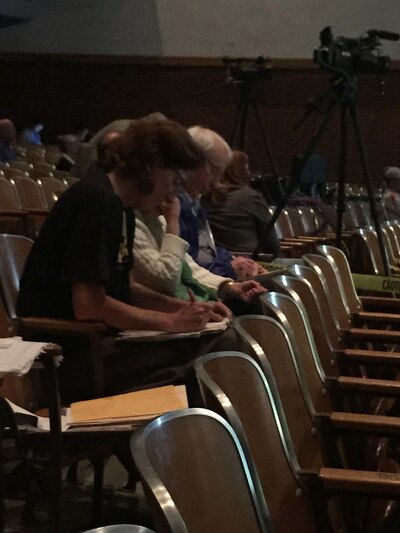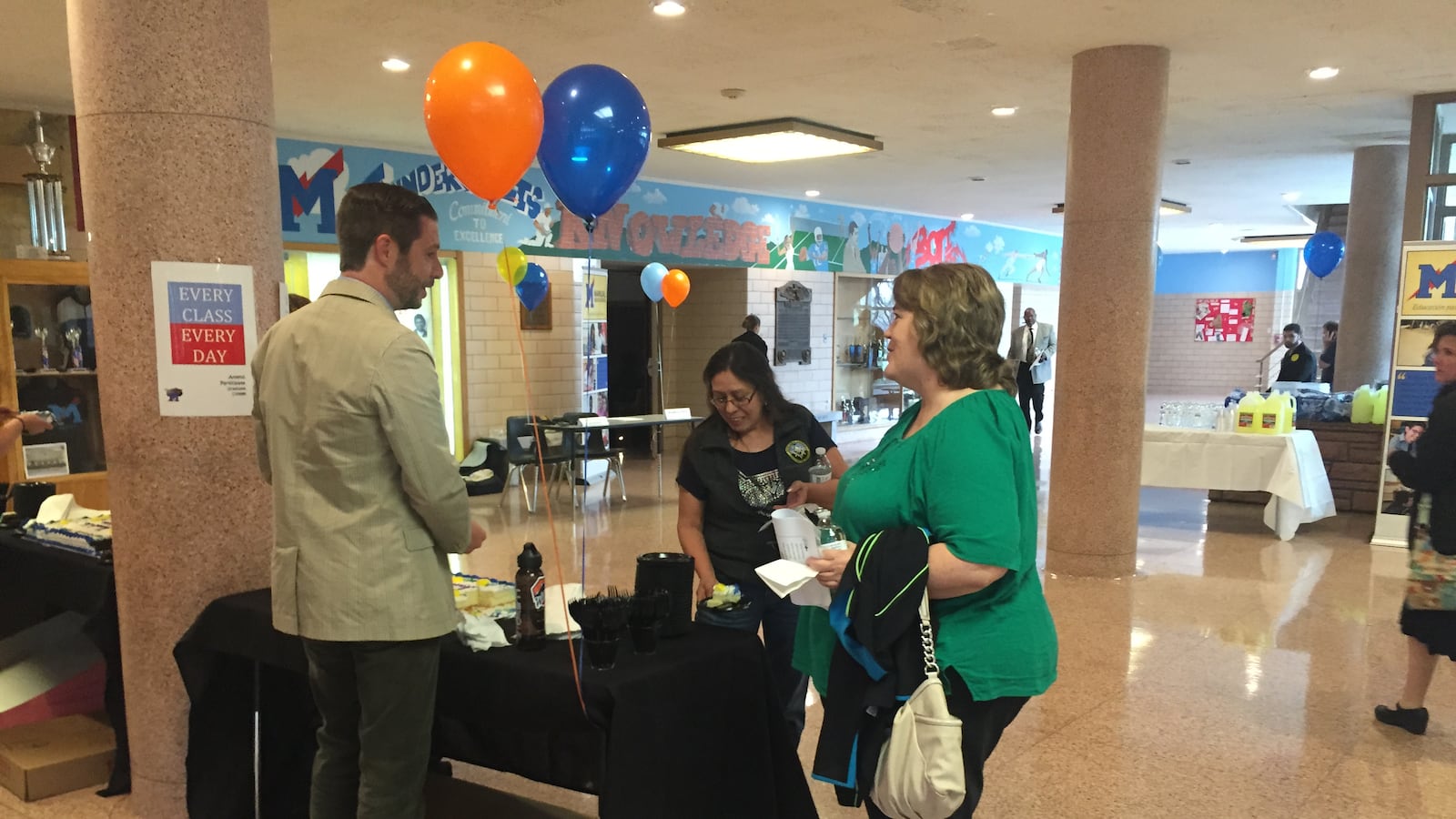The Denver school board approved innovation plan and charter renewals for 20 schools and new innovation plans for two schools during its April meeting Thursday evening.
At one of its most well-attended meetings this year, held at Manual High School, the board also heard a series of public comments on issues ranging from Denver Public Schools’ pension decisions to standardized tests to ProComp to the district’s embrace of innovation and charter schools.
Check out our board tracker for a full list of all DPS board votes.
Plans for innovation, charter schools
The board approved new innovation plans for Place Bridge Academy in southeast Denver and Kepner Beacon, which is slated to open in 2016. (See the district’s recommendations for schools here.)
As innovation schools, Place Bridge and Kepner Beacon will be given waivers from certain district requirements and policies. Teachers must vote to approve innovation plans, and schools must show they have garnered community support for the changes. DPS already has 35 innovation schools, far more than any district in the state.
Place Bridge is an ECE-8 school in southeast Denver that serves many English language learners and students who are new to the United States. The school requested waivers from standard district curriculum requirements, professional development, budget, and hiring/ human resources practices. The school’s staff voted 53-26 to approve the plan.
The board unanimously approved the innovation plan.
Kepner Beacon will be an expansion of an already-existing innovation school, Grant Beacon Middle School. Teachers at Grant Beacon voted to approve Kepner Beacon’s innovation plan.
Board member Arturo Jimenez was the sole board vote against the Kepner plan.
Jimenez raised concerns that new teachers at Kepner Beacon, who were not part of that vote, would be required to opt in the innovation plan, which includes a waivers of some aspects of the district’s collective bargaining agreement.
Colorado teachers unions have raised legal concerns about DPS’s previous creation of new innovation schools that had no staff to approve the plans. A court has upheld the district’s actions, but Jimenez said he thought the Kepner expansion might be a different legal situation.
“We’re all pulling for (principal Alex) Magaña and his plan,” he said. “But I think the innovation proposal is lacking in that particular point.”
Superintendent Tom Boasberg said that the teachers at Kepner Beacon will have a secret ballot after they’re hired to determine whether they want to opt into the innovation plan.
The board also approved a set of extensions of innovation and charter contracts (see board tracker for full list). The state requires that innovation renewals be considered every three years and that charters be considered every five years, but several schools were only given renewals for a year or two based on an evaluation by DPS central office. West Generations, for instance, was given a one-year extension due to its low academic performance and inconsistent leadership.
Critical eyes
The night’s meeting also attracted dozens of teachers, parents and students, some to support schools with renewals on the table but more with a laundry list of concerns to share.

About 20 Park Hill residents showed up to complain that they do not have a neighborhood school anymore because of the district’s shared enrollment zones. One mother said her child had not been placed at any of the schools they had listed on their choice form.
The crowd let out loud rounds of applause for student Josie Karet, who said she opted out of standardized tests, and for parent Lynn Roberts, who described tests as “a violation of learning opportunities.”


